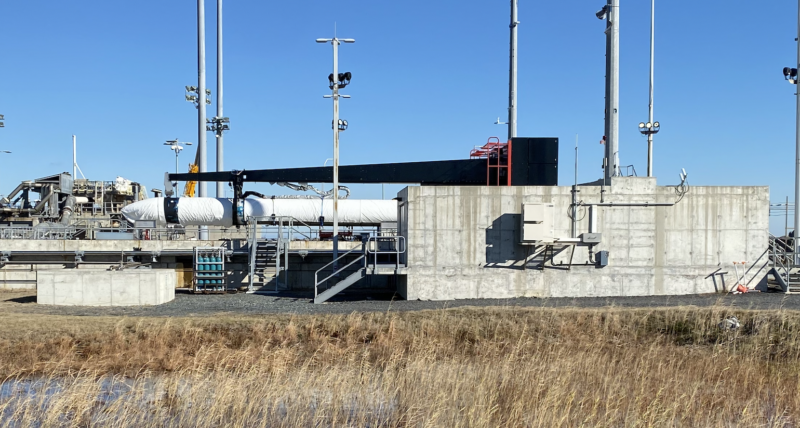
John Timmer
On Sunday, RocketLab plans to send its small launch rocket, the Electron, into orbit from the Mid-Atlantic Regional Spaceport, or MARS. The launch is scheduled for 6 pm US Eastern; we’ve embedded a livestream below.
This will be RocketLab’s first launch from MARS, and the first by any company not currently owned by Northrop Grumman, which has used the site for its Minotaur and Antares rockets. Prior to today, RocketLab has done all its launches from a site in New Zealand, where its Electron vehicles are built. MARS is located at NASA’s Wallops Flight Facility, on the Virginia portion of the Delmarva Peninsula, which separates Chesapeake Bay from the Atlantic Ocean.
RocketLab CEO Peter Beck told Ars that the site offers access to some additional orbital trajectories that can’t be reached from New Zealand, and allows the company to compete for business with US government agencies that have a requirement for US-based launches. MARS was appealing in part because the lower launch cadence there means that there’s less potential for scheduling conflicts.
That said, the launch has experienced several delays from its original planned date due to weather, other events downrange, and a last-minute delay in the exchange of some paperwork between NASA and the Federal Aviation Administration. The last hurdle was cleared yesterday, setting the stage for tonight’s launch.
The launch will take place after sunset—the launch window is open between 6 pm and 8 pm—and should be visible from much of the Northeast, weather permitting. The company has a map that indicates potential viewing from as far away as Georgia, Ohio, and Maine.
The Electron is a small, light rocket—light enough that it’s hauled to the launch pad by a heavy-duty pickup truck. It can handle payloads of up to 300 kg and is being used to put a commercial radiofrequency Earth-observing satellite into orbit in this case. While originally designed to be expendable, RocketLab has been experimenting with recovering Electrons using a parachute system that’s snagged by a helicopter. Today’s rocket won’t be recovered, though.
RocketLab’s livestream.








